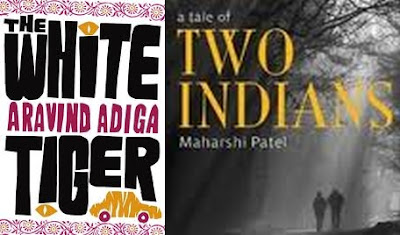I wonder what made the tv program KBC
so popular. Notwithstanding the star value and the prize money, the
main reason for the popularity, I suppose is the limited thinking it
calls for. Choose among four options and if you find that two, too
many, go for fifty-fifty and if that is also beyond your reach, then
ask someone who, you think knows the answer.
Suppose someone were to
ask you what was the blunder committed by Stonewall Jackson, which
changed the course of American history. The question does not give
the slightest clue as to whether the perpetrator of the offence was a
politician or a baseball player. Yet, under KBC format, one could
successfully negotiate the question, keeping your ignorance of
American history intact.
How simple life becomes, when you apply the KBC or
the MCQ format to day to day situations !
A clever mother does not ask the kids
“What would you have for breakfast ?” This may be just the
beginning of of an unending discusion or arguement as neither the
kids have a clear idea of what they want nor the mother has a clear
idea of how she can produce what the kids ask for.
So it is “Bread or Parantha ?”,
“Coffee, Tea ?” “butter or jam ?” and so it goes.
With designer wears available for every
item of clothing and accessories you just need to choose a brand
name, at best an informed guess. Of course, there are variations in
the same brand, but an expert comes to the rescue.
If you want to build a house , you frst
choose a builder selling residential flats and then a financial
institution to loan the amount. Simplicity itself. Compare this to
site selection, design of house, procurement of materials ,
organising the labour force, etc etc. The issue gets simpler if you
have selected the right father in law (or a husband; to be politically
right, parent in law or the spouse) Then He or She would take care
of the mortgages.
Most of the examinations today are
based on objective type of question paper with “guess the right
answer” and “head or tails” (Some insist that they are actually
“choose the right answer' and true or false' ) questions.
Nothing brings out the KBC Syndrome
better than an omnious computer screen to install a new application.
Many of us would be familiar with the need to choose among “full,
compact, standard and custom options to choose from. with standard,
selected by default. How many of us have chosen the 'custom'
option ?
The busy life we lead (or pretend to
lead) nowadays precludes any original thinking. The theme of the game
is why should one think when a set of options have been thought of
by someone paid to think. In other words, think only when paid to do
so or when there are no other options !
Even the options are to be derived by
someone 'thinking' through complex situatons. Nothing wrong with
that, but the fact is that less and less people or required to think
while the vast majority just see the laid out options and click a
radio button. Will brain become another vestigial organ ?!
What's more interesting is that even
when the choices are well defined, most of us steer clear of the
situation when the number of options exceed four, ie the number
specified by our super hero. The situation is termed, “Complex”
and you run to an expert or a professional for a fifty-fifty !
'


























